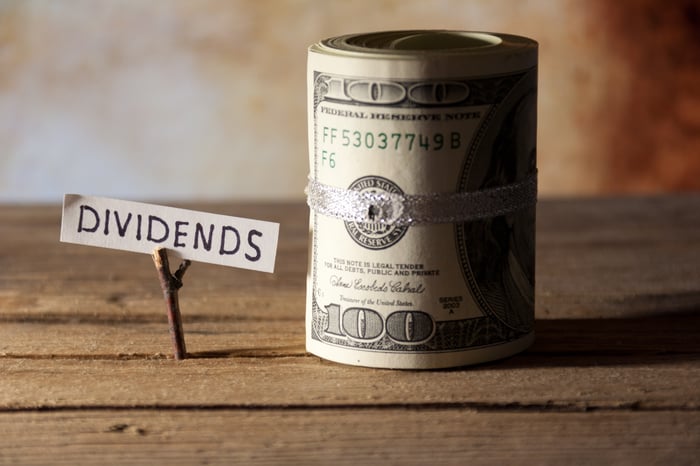When it comes to dividends, achieving Dividend King status is pretty much the pinnacle of success for a company. There are a handful of publicly traded utilities that have the 50+ years of annual dividend increases needed to qualify as a Dividend King. The Southern Company (SO 0.40%) is not one of them. Still, dividend-focused investors would be wise to dig a little deeper into the company's history before passing it by.
This isn't a bad starting point for the dividend
Southern's dividend yield today is a touch over 4%. That compares to the average utility yield, using Vanguard Utilities Index ETF (VPU 0.81%) as a proxy, of about 3.5%. Of the utilities that are Dividend Kings, only two have higher yields. And both of those companies, Black Hills Corporation (BKH 0.76%) and Northwest Natural (NWN 1.42%), are much smaller companies.

Image source: Getty Images.
Putting some numbers on that will actually be very informative. Southern has a market cap of $74 billion. It is one of the largest public utilities in the country. Black Hills has a market cap of $3.6 billion, while Northwest Natural weighs in at a relatively tiny $1.4 billion. That's not to suggest that Southern's dividend is better because the company is larger, but that Southern is playing in an entirely different league relative to these two more modestly sized competitors even though they are Dividend Kings.
So compared to the broader utility space, and even Dividend King utilities, Southern's yield is fairly attractive today. But what about the dividend streak?
Southern has a long history of rewarding investors
Fifty years of annual dividend increases is an impressive achievement. As noted, Southern hasn't reached that level. Its streak is at 22 years and counting. That's better than 10, which is a low-end number that some investors use. But not quite as good as 25, another number that's favored by investors.
However, there's more to know here. For example, the last decade of dividend increases have come despite the difficulty the utility has faced in a large and important capital investment. While the Vogtle project, which is composed of two large-scale nuclear power plants, looks like it is nearing completion, it faced long delays and was hugely over budget. That didn't stop the board of directors of Southern from continuing to reward investors with modest dividend increases each year. So, there is a material commitment to the dividends that is hidden beneath those 22 hikes if you take the time to look.
But there's even more commitment if you look beyond those 22 years. Specifically, Southern's dividend has been held stable or increased for 76 consecutive years. The company's history dates back a long way, but it has basically increased its dividend or held it steady for all of its publicly traded existence. Think about the last 76 years and what that period includes, like the hyperinflation of the 1970s, the tech crash in 2000, the Great Recession, and most recently, the coronavirus pandemic. Southern's dividend was resilient through all of these massive dislocations and many smaller ones.
There is far more commitment to the dividend at Southern than the 22-year streak would suggest. Add in an above-peer average yield, and you might want to consider this giant utility alongside, or even in lieu of, Dividend Kings like Black Hills and Northwest Natural.
Arbitrary numbers can mean missing important nuances
Investors need shortcuts to slim down the number of stocks they are looking at. But sometimes, the data points and metrics used can miss important facts. For example, if you only look at stocks with 25 years of annual dividend increases or super-elite Dividend Kings, the 22-year streak from Southern would fall short. But this dividend-paying utility has a generous yield and a very strong record of supporting its dividend through thick and thin. You'd need to dig in a little deeper to find nuances like that, but if you are a long-term dividend investor, the effort could be well worth it if it unearths dividend gems like The Southern Company.





